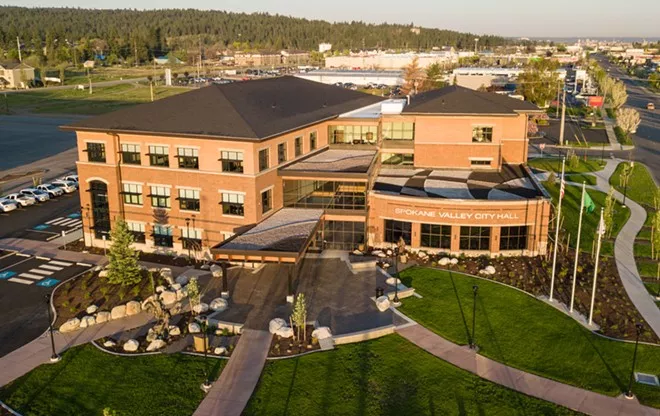
In the city of Spokane, similar laws have led to police handing homeless people hundreds of citations per year — and as we detailed last week, Spokane Police sometimes enforce camping bans when there is no shelter space available, despite the Ninth Circuit Court of Appeals ruling that cities shouldn't do so.
"We are not aware of any citations being issued for illegal camping," says Morgan Koudelka, senior administrative analyst for Spokane Valley. "For us, that's a last resort. We don't think it's productive. It's not the desired outcome."
That's consistent with the rest of the county, outside of Spokane city limits. Earlier this month, when the Inlander asked Spokane County District Court for citations under the county's unlawful camping code, it turned up zero results. (Spokane Valley's Police Department operates under the Spokane County Sheriff's Office.)
But Spokane Valley doesn't have a Community Court. So both Spokane Valley officers and sheriff's deputies are taking a more informal approach while trying to achieve the same results or directing homeless people to services.
"We're trying to do that without the compulsion factor and get them to work [with us] willingly rather than force them into it," says deputy city attorney Erik Lamb.
The alternative, he adds, may not solve the problem. Violators of the camping ban in the valley could face up to 90 days in jail or a $1,000 fine.
"It's a relatively low-level offense, but they may spend time in jail and then come back out with another mark on their record," Lamb says. "What we're really looking to do is get them into appropriate programs."
"Our main focus is to turn around and get them connected with the services they need, and we also try to work with outreach groups," Gregory says. "Sometimes they tell us they don't want help. And then we explain to them that hey, you can't just be camping here."
That doesn't mean other laws aren't being enforced, however. Lamb says that in the Valley, deputies will enforce laws for disturbing the peace or defecating or urinating in public areas.
"That sort of behavior — that is out in the open — that really isn't appropriate anywhere," Lamb says.
So far, he says, they've had relatively few issues.
"Most of the folks are very cooperative," Koudelka says. "They want help. And the ones that don't move on usually without a problem. So we haven't had to write citations or enforce things."






















